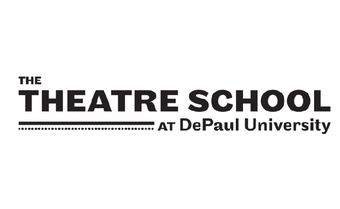Your Guide to Theater Education
Steppenwolf
In this series, David Dudley looks at the different models of theater education around the country through interviews, with the hopes that a new student will have an easier time finding the model that works for them.
Steppenwolf Theatre hardly needs an introduction. The legendary ensemble, founded by Gary Sinese, John Malkovitch, and others in Chicago, has been a leading force regional theater since the mid-seventies. The company has grown immensely, adding many new members to their ensemble.
As Kate Holst Test—Human Resources and Professional Leadership Programs Coordinator—will attest in the following interview, Steppenwolf is serious about training the next generation of theatermakers and arts administrators. Steppenwolf offers their apprentices top-notch training in a number of disciplines through a learn-by-doing model—as well as a living wage. Not bad, considering other apprenticeships that are more akin to unpaid internships.
David: When was Steppenwolf's apprenticeship program started?
Kate: Since 1984, Steppenwolf Theatre Company has offered internships to students, graduates, and others to experience the inner workings of a professional theater from every angle. The company has developed a collection of programs purposed to identify, train and mentor a diverse group of students, graduates and early-career professionals in arts administration, stage management and production. The Professional Leadership Programs include a nine-month Apprenticeship and Multicultural Fellowship, and a three-month Summer Internship. Each year, these nationally renowned programs attract over 800 candidates for forty positions in the company’s administration and production departments.
David: What does Steppenwolf's Apprenticeship offer potential collaborators?
Kate: Steppenwolf’s professional leadership programs offer hands on training with some of the country’s top professionals. Apprentices make up almost 13 percent of the staff, so they are a vital piece of the organization. Steppenwolf apprentices leave this program knowing what it takes to work for a major regional theater. They not only learn the skills needed to be successful in their departments, but through our monthly seminar series they observe all the inner workings of the organization, as well as develop a professional ensemble by working on collective learning projects.
David: How is Steppenwolf's Apprenticeship program different from other apprentice programs?
Kate: There are a few key differences in our program:
- Scope, History and Access: Steppenwolf is among a handful of major regional theaters with large budgets. Also, Steppenwolf has a deep history as being a leader and innovator in the theater community. The scope of work that apprentices are able to take on and the access they get to our artists and staff is a wholly unique experience.
- Chicago: Chicago has a rich, vibrant theater community that is unlike any other city. Many staff members and apprentices at Steppenwolf work with two or three different theater companies.
- Pay: Steppenwolf Apprentices are paid an hourly wage (minimum wage for Illinois is $8.25) and work up to forty hours a week, depending on their department.
David: What kinds of challenges have you faced? How do you intend to approach them in future?
Kate:
- Time: Our administrative apprentices work about twenty-eight hours a week. This can be a challenge for some positions as they are often trying to fit in a job and all of the auxiliary activities into the time allotted.
- Turnover: This is a struggle for the organization. It is difficult to have a new person in a position three times a year. Many supervisors have a hard time working onboarding into their calendars when they are busy with load in/tech/strike/or other departmental projects. This is also difficult when you have someone starting a project and then leaving at a specific time. It is hard to contain the institutional knowledge for these longer-term projects.
David: What's missing, in your opinion, from the current education/ training programs available?
Kate: A sharper focus on recruitment and diversity—we need money and time in order to really enrich these areas. I think there is also an opportunity for more leadership opportunities for the current apprentices. This is something I have thought about a lot in terms of working with our education department and/or working in opportunities for apprentices to lead seminars and projects with their peers.
David: Who do you feel is the ideal candidate for the Steppenwolf family?
Kate: Participants at Steppenwolf are most successful if they are curious, hard-working self-starters. Ultimately it is up to the apprentice to make the most out of their experience here. Each department is looking for a different fit for their specific role.
David: What do you hope your graduates/ trainees do, once they complete the program?
Kate: Continue on to be the next leaders and innovators across the country in theater. Participants should leave this program having the skills to walk into a full time job at any theater.
David: Any changes planned for the future?
Kate: Each year we evaluate the programming and make small and large changes to areas such as the seminar series, evaluation process, or long-term project requirements. One major change that is happening next year is with the Multicultural Fellowship; we are expanding the hours that Fellows work at Steppenwolf and having them take on leadership, specifically in recruitment and alumni programming for our Professional Leadership Programs. Fellows will be asked to work with the program coordinator on managing these two crucial pieces of the program and be tasked with thinking innovatively around ways to improve both areas.
David: Success stories?
Kate: 16 percent of our current full time staff is alumni of our professional leadership program. Additionally, we have alumni working all over the country and world in organizations such as Goodman Theatre, Writers Theatre, Cleveland Playhouse, Next Theatre Company, and many more.







Comments
The article is just the start of the conversation—we want to know what you think about this subject, too! HowlRound is a space for knowledge-sharing, and we welcome spirited, thoughtful, and on-topic dialogue. Find our full comments policy here